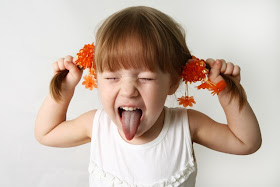First, check if children are misbehaving because they:
- Do not feel well or they are hungry, sick or tired
- Lack knowledge or experience (they may need to learn how to act in social situations)
- Feel rejected (everyone wants to be loved and accepted)
- Are feeling stressed (is there a new baby in the house, did they just move, was there a death in the family, are the parents arguing?)
- Feel discouraged (often children misbehave to get our attention)
Further reasons for misbehavior can be broken down into four basic categories. If you understand these goals of misbehavior, you can sometimes change your reaction to the behavior and in many cases can change the behavior of the child. The goals of the misbehavior are subconscious to the child. The child is not deliberately acting in negative ways. The child is using unsuccessful methods of filling unmet needs.
1. Attention
- Attention-getting is the most common type of misbehavior.
- Power is another common goal of misbehavior. The child is asking for more control over his or her own life.
- Avoidance of failure may be the hardest behavior to change. The child feels inadequate and unable to achieve.
- Revenge is another goal of misbehavior. You usually see this in a child who is already angry and feeling hurt.
A Basic Approach to Understanding Misbehavior
Understanding Behavior in School Age Children
Surviving Toddlerhood

No comments:
Post a Comment